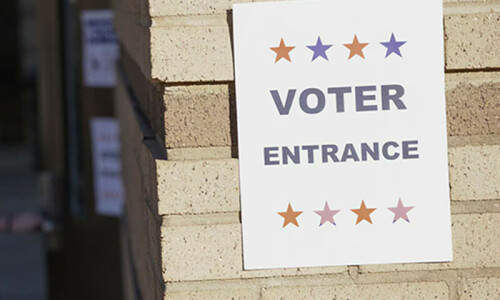HELSINKI: As Sweden gears up to vote on the European Union’s common currency, its Nordic neighbours are watching with feelings ranging from hope to indifference that underline the region’s contradictory views on Europe.
Sweden, Norway, Denmark and Finland may hold common views on the welfare state, high taxes and gender equality, but they have chosen their own paths in relations with the EU and over the euro.
Finland, the lone Nordic country using the single currency, is keen to see the neighbourhood heavyweight pull up a chair at the euro table, hoping to enhance the region’s clout in the EU.
A “yes” to the euro in Sweden’s referendum on Sept 14 would bring relief to Finnish firms competing against rivals in telecommunications, forestry and engineering using the freely floating and lately weaker Swedish crown. Finland, home to the world’s largest mobile phone maker Nokia, was a founding member of the euro and membership has helped blunt the impact of global financial crises and opened up the country to investors.
“After the euro switch our investor base in Europe started to grow, people in European countries started to invest more in the company,” said Nokia spokeswoman Maija Tommila.
Swedish entry would simplify accounting and risk management for firms of all sizes that contribute to the eight billion euros ($8.63 billion) of annual trade between the two countries.
“In the short term, a ‘no’ vote probably means a weaker (Swedish) crown, which will make it more difficult for Finnish companies,” said economist Reijo Heiskanen at Nordea Bank.
In notoriously EU sceptical Denmark, Sweden’s euro decision is likely to meet an indifferent shrug as Danes are bracing for an EU-related plebiscite of their own.
Prime Minister Anders Fogh Rasmussen has said Denmark will vote in 2004 on ratification of an EU treaty to streamline decision-making before the bloc gets 10 new members next May.
Since they voted to join the EU in 1972, the Danes have held five referendums on major European Union issues, twice returning a “no”.
Copenhagen negotiated opt-outs from increased EU cooperation, notably the common currency and joint defence, after the Danes rejected the Maastricht treaty in a 1992 referendum that sent shockwaves throughout the bloc.
In 2000 the Danes said “no” to the euro and they remained outside the 12-nation euro zone along with Britain and Sweden.—Reuters












































Dear visitor, the comments section is undergoing an overhaul and will return soon.